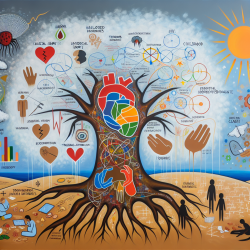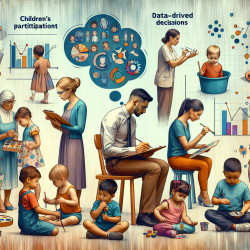Introduction
The Cedar Project, a cohort study involving young Indigenous people who use drugs in two Canadian cities, provides critical insights into the associations between childhood maltreatment, colonial harms, and health outcomes such as HIV and hepatitis C virus (HCV) infection. The findings underscore the importance of trauma-informed and culturally safe public health interventions to support the healing and well-being of Indigenous communities.
Understanding the Findings
The study reveals a high prevalence of childhood maltreatment among participants, with significant associations between various types of maltreatment and colonial harms such as residential schools and foster care. Emotional abuse, physical abuse, sexual abuse, emotional neglect, and physical neglect were all linked to increased risks of sex and substance use-related behaviors, as well as HCV infection.
Notably, sexual abuse was found to significantly increase the odds of HCV infection, highlighting the need for healthcare providers to consider the history of sexual abuse and complex trauma in their care strategies.
Implications for Practitioners
Practitioners working with Indigenous populations must prioritize trauma-informed care that acknowledges the intergenerational impacts of colonial harms. This involves:
- Implementing culturally safe practices that respect Indigenous knowledge and traditions.
- Providing holistic care that addresses mental, emotional, physical, and spiritual well-being.
- Engaging with Indigenous communities to co-develop interventions that are relevant and effective.
Moreover, practitioners should advocate for systemic changes that support Indigenous self-determination in health and child welfare policies.
Encouraging Further Research
The Cedar Project's findings also call for further research to explore the complex pathways linking childhood maltreatment, colonial harms, and health outcomes. Future studies should aim to:
- Examine the role of protective factors and resilience in mitigating negative health outcomes.
- Investigate the effectiveness of integrated care models that combine Western and Indigenous healing practices.
- Explore the broader social determinants of health that impact Indigenous communities.
Conclusion
The Cedar Project highlights the urgent need for trauma-informed and culturally safe interventions to address the health disparities faced by Indigenous communities. By understanding and addressing the root causes of these disparities, practitioners can contribute to the healing and empowerment of Indigenous peoples.
To read the original research paper, please follow this link: The Cedar Project: exploring the role of colonial harms and childhood maltreatment on HIV and hepatitis C infection in a cohort study involving young Indigenous people who use drugs in two Canadian cities.










